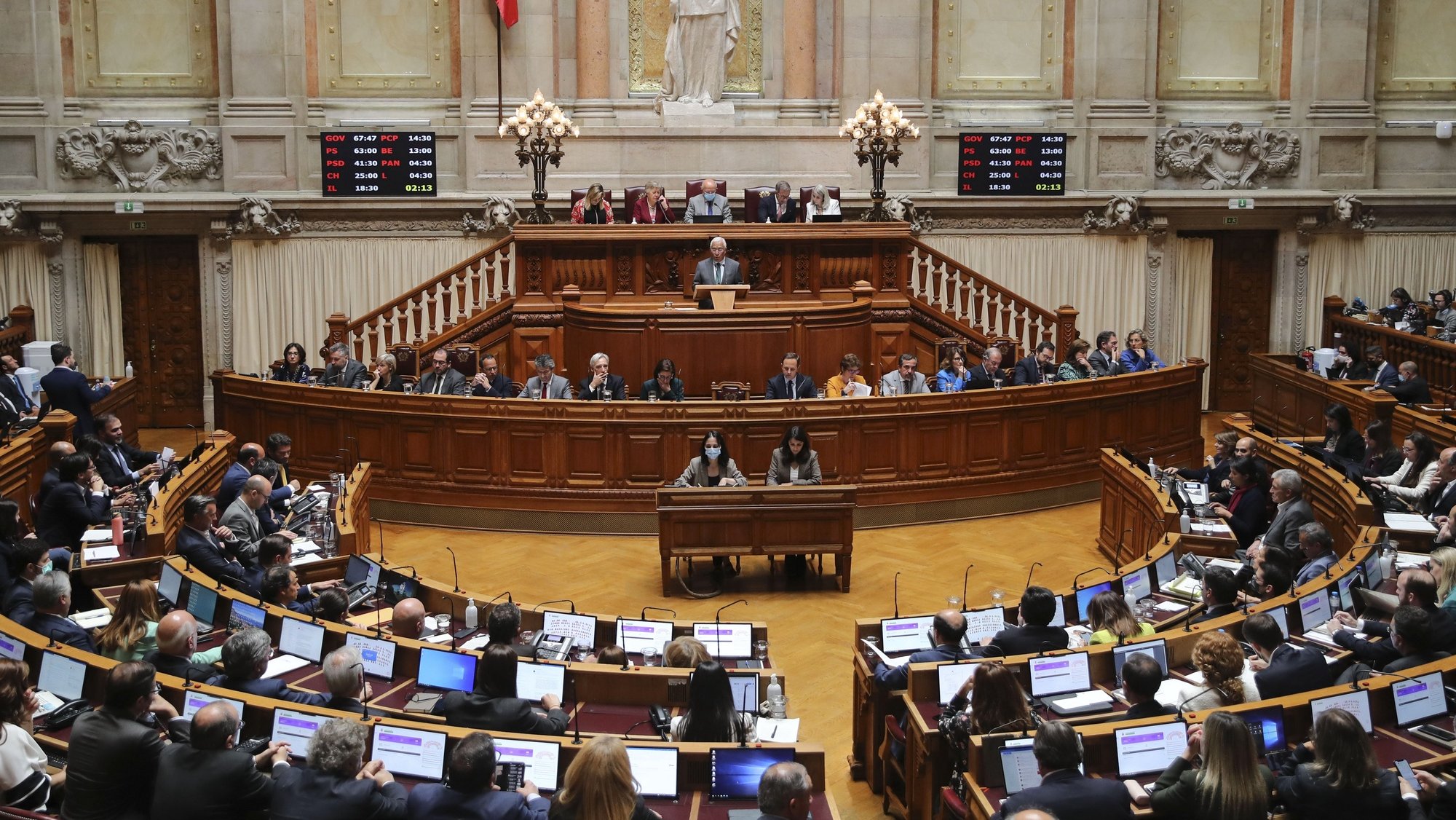The decriminalization of medically assisted death, the metadata law or the Chega project to condemn the conduct of the president of parliament are issues that will mark the resumption of parliamentary work in September.
After the vacation recess, the deputies return to the Assembly of the Republic on September 6. Many diplomas await the arrival of parliamentarians in São Bento, among them, the draft resolution presented by Chega that seeks to condemn the conduct of the President of the Assembly of the Republic, Augusto Santos Silva, accusing him of lack of impartiality and exemption .in the exercise of their functions.
It was the president of parliament himself who asked for an opinion on the admission of this project to the Committee on Constitutional Affairs, Rights, Freedoms and Guarantees, which will evaluate the issue in September, noting that he has “very deep and very complex doubts”.
The last few months of parliamentary work were marked by moments of tension between Augusto Santos Silva and Chega’s parliamentary caucus, which culminated in the party’s deputies leaving the chamber in protest at the end of July.
Another of the ‘files’ to recover in September is the government’s bill, to which are added the PSD, Chega and PCP bills, which intend to try to overcome the Constitutional Court’s veto of the metadata law.
The parliamentary working group dedicated to this issue decided to extend the discussion on the subject until after the holidays and several hearings have already been approved, namely the national director of the Judicial Police, Luís Neves, the president of ANACOM, João Cadete de Matos, the Ombudsman, Maria Lúcia Amaral, as well as the National Data Protection Commission.
In a judgment of April 19, the Constitutional Court declared unconstitutional the metadata law regulations that determine that telephone and internet service providers must keep the data related to communications with customers —including origin, destination, date and time, type of equipment and location—for a period of one year, for eventual use in the criminal investigation.
The President of the Republic, Marcelo Rebelo de Sousa, has already said that he will ask the Constitutional Court for a preventive inspection of the new law that will be approved by Parliament.
Another of the legislative processes to be finalized in the return to parliamentary work is that of assisted medical death, an issue that has been debated in parliament since 2018, with advances and setbacks, and which has already been the subject of two vetoes: the first time after the Constitutional Court, following a request for inspection by Marcelo Rebelo de Sousa. For the second time, the decree was again rejected by the President after a political veto.
In the work of the specialty, which should be resumed in September, there are initiatives from the PS, BE, PAN and the Liberal Initiative that lower the “fatal disease” requirement.
PS, BE and IL propose euthanasia in situations of “extremely serious definitive injury” or “serious and incurable disease”. Regarding this last criterion, the PAN establishes the requirement of “serious or incurable disease”. The revision process of the Regulations of the Assembly of the Republic, whose central point is the change in the model of parliamentary debates with the Prime Minister, was also postponed for next month.
With the exception of PS and PCP (which foresee monthly debates with the head of government), all the other parties defend the resumption of fortnightly debates with the President of the Government, which ended with the last modification of the Regulations of the Assembly of the Republic, approved by the PS and PSD on July 23, 2020.
Another of the issues that should occupy the work of the deputies in September is the already announced Chega constitutional review project.
Last year, the Temporary Constitutional Revision Commission debated a single bill presented by the party led by André Ventura, after the Liberal Initiative withdrew its bill. This review was ultimately rejected by all other political forces. An issue that is also pending results is the health emergency bill presented by the Government, a diploma prepared by a technical commission appointed by the President of the Government, António Costa, to study the review of the applicable legal framework in the context of a pandemic. according to the experience lived with covid-19.
The President of the Republic has already made it known that, although he has no strong doubts about its constitutionality, he intends to send the future health emergency law to the Constitutional Court, preventively, to strengthen it and avoid resources.
Source: Observadora
